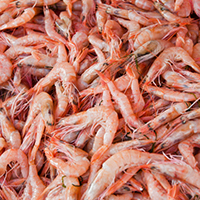 Joe Kelly is completing the MA in International Slavery Studies and will begin an ESRC-funded CASE studentship on slavery and supply chains in September
Joe Kelly is completing the MA in International Slavery Studies and will begin an ESRC-funded CASE studentship on slavery and supply chains in September
“A recent investigation by the Guardian has revealed that Thailand’s prawn fishing industry relies on the ruthless exploitation of unpaid migrant labour. Thai prawns make up a large amount of the cheap prawns on offer within UK supermarkets. This represents a clear case of UK companies whose supply chains contain forced labour.
“Forced labour has become a hot topic in recent weeks with the government announcement of a Modern Slavery Bill indicating a genuine commitment to tackling exploitation of workers in Britain. But, what about forced labour elsewhere?
Supply chain
“A supply chain describes the various companies and processes products pass through before making their way into the hands of the British consumer. In a world where products are sourced from around the globe there is a growing chance of consuming the products of forced labour. Whilst UK businesses might seek to eradicate any slavery within its own employment practices, their suppliers abroad may rely heavily on violent exploitation.
“This raises the issue of what can be done to prevent forced labour produce finding its way into Britain. Opposition politicians have called for the government to take action and make it compulsory for companies to declare the presence of forced labour in their supply chains. Campaigners from Anti-Slavery International have also called for greater focus on supply chains, having criticised the absence of the issue from the recent Modern Slavery Bill.
“This is by no means a new dilemma as Britain’s active commitment to the abolition of the transatlantic slave trade in the nineteenth-century demonstrates. British consumers and businesses still purchased slave produced cotton and sugar from the Americas after Britain had abolished slavery in its empire in 1834. This contradiction proved to be the subject of heated parliamentary debate with several solutions put forward. Ultimately, the Victorian dilemma foreshadows the one facing us, with the onus falling on the consumer to avoid slave-produced goods.
Require personal sacrifice
“Whatever approach is taken towards supply chains, media coverage focuses our minds on the fact that rejecting forced labour does not equate to rejecting its products. Both British companies and consumers currently benefit, however indirectly, from the cheap produce made possible by exploitation abroad. Whatever the solution is, be it government legislation or individual choice, one thing is clear: Any action taken will require personal sacrifice for the benefit of others.
“As part of this month’s International Festival of Business, the University’s Centre for the Study of International Slavery is hosting a lunchtime meeting for business leaders, to discuss best practice with Liverpool researcher Glynn Rankin and the Director of Anti-Slavery International.
“As modern slavery starts to lead the front pages of our newspapers, we can only hope that business and government will move the issue up their agendas too.”
To find out more about the University’s MA in International Slavery Studies click here
